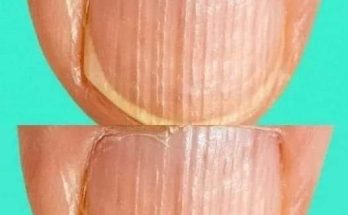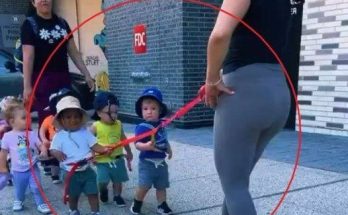Ash Putnam, a 23-year-old from California, recently went viral on TikTok after sharing her experience of being turned down for a job at TJ Maxx. In her video, which has since garnered over 7 million views and thousands of comments, she vented her frustration about how young people with tattoos might face additional hurdles in finding entry-level work. Her story sparked a lively discussion on the platform, with most commenters appearing to agree on one thing—her tattoos likely influenced the outcome.
Putnam shared in her TikTok video that she had applied for a job at TJ Maxx and, after a few weeks, received an automated email informing her that her application was unsuccessful.
“They couldn’t even call me,” she said. “They just sent me some automated email.”
Unsatisfied with the lack of a clear reason, Putnam decided to visit the store and ask the hiring team directly about the decision.
“I went in today and was like, ‘So what was the reason why I didn’t get hired?’” she explained. According to Putnam, the response she received was that other applicants simply had more experience.
Since she’s aware that tattoos can sometimes be seen as unprofessional, she took the opportunity to ask if her body art had anything to do with it. “I asked her if it was about my tattoos, obviously, because I know a lot of places don’t like tattoos. She said that wasn’t the reason, but I don’t feel like that’s true. But whatever, I’ll leave it at that,” she shared.
Putnam was left feeling disappointed and frustrated, especially since she feels her tattoos have no bearing on her ability to perform well at work. “Just because I have tattoos does not imply I won’t be a good employee. That makes no sense to me. Some of the most educated people I’ve ever met have tattoos and piercings,” she argued in her video.
While TJ Maxx never provided a direct answer about whether her tattoos were a factor, many TikTok commenters speculated that her visible ink may have played a role in the decision.
One comment read, “Tattoo artist here—it’s probably the tattoos.” Another added, “HR supervisor here. There’s no way any company would put you in front of customers like TJ Maxx with tattoos like that.”
One user who claimed to be a former TJ Maxx employee chimed in, saying, “I worked at TJ Maxx, and they will hire just about anyone that comes off the street. It’s definitely the tattoos and piercings.”
Other viewers suggested it might not just be the fact she has tattoos, but their placement. “I don’t think it’s because you have tattoos…I think it’s WHERE you have tattoos 🤷🏾♂️,” one person commented.
In an interview with the Daily Star, Putnam shared that she suspects her tattoos may indeed have played a role in her rejection. “I absolutely do think it’s about my tattoos because apparently my tattoos are demonic and scary to a lot of people,” she said, acknowledging that the feedback on TikTok has been harsh, with some commenters even suggesting she seek work at “a circus or a Halloween store.”
Despite these criticisms, Putnam stands by her belief that tattoos should not influence hiring decisions. “Businesses need to realize that tattoos don’t impact a person’s abilities or work ethic,” she explained. To her, tattoos are simply a form of self-expression, unrelated to a person’s qualifications or professionalism.
Her video highlights a broader issue that many young people with visible body art face when job hunting. Tattoos, once associated with subculture or rebellion, have become mainstream, yet workplace biases remain. Many workplaces, especially those with customer-facing roles, still uphold a conservative view of professionalism that excludes visible tattoos or piercings.
Putnam’s story resonated with many TikTok users who shared similar experiences. “Tattoos don’t affect your work ethic,” one user commented. “I’m covered in tattoos and have been in customer service for years. It’s all about how you treat people.”
Others, however, pointed out that certain companies feel the need to uphold specific standards, and that visible tattoos may not align with the image they wish to present. “Companies want to project a certain image, and tattoos don’t always fit,” one user remarked, implying that it may not be personal but rather a matter of brand image.
Putnam hopes that her experience with TJ Maxx will encourage companies to reevaluate their stance on tattoos and reconsider outdated biases. “Businesses need to realize that tattoos don’t impact a person’s abilities or work ethic,” she reiterated. She believes it’s time for a shift in thinking, especially as more young people enter the workforce with diverse forms of self-expression.
In a world where tattoos have become a widely accepted form of personal expression, Putnam’s story serves as a reminder that these biases may be outdated. Her viral video has sparked conversations on normalizing tattoos in professional environments, and many hope that workplaces will become more inclusive, valuing individuality over conventional appearances.
Putnam’s story is a call for change, a reminder that professionalism should be measured by behavior and competency rather than appearances. Her journey on TikTok has opened a dialogue, and with her video reaching such a large audience, perhaps the message will reach those in hiring positions. In the end, as society and workplace norms evolve, there’s hope that individuality, including body art, will be seen as a strength rather than a barrier.



